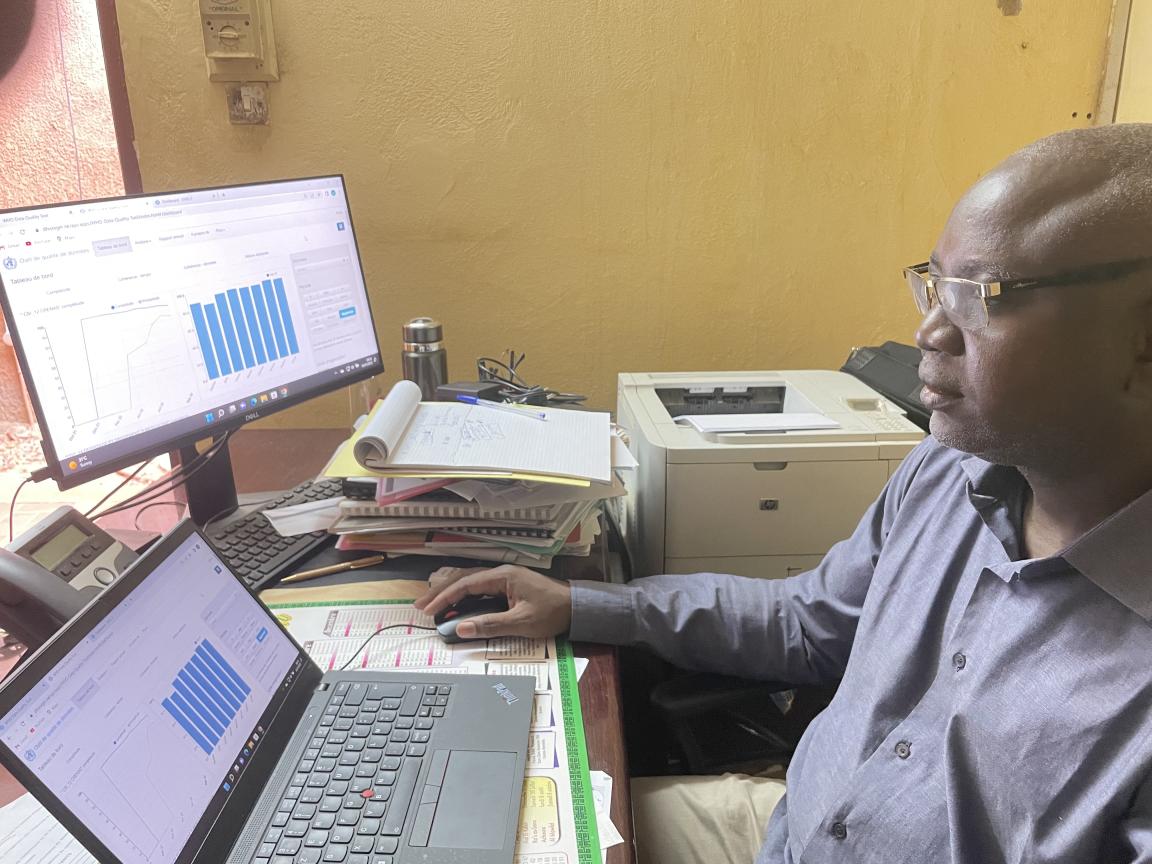CHISU is helping coordinate the implementation of data quality review (DQR) tools in Niger in collaboration with the Ministry of Health Directorate of Statistics. Although the country deployed the DHIS2 data management platform in 2017, quality data collection remained problematic, particularly for the routine Health Information System (HIS).
The Directorate of Statistics and its partners revised the indicators and data collection tools in 2019. This work generated a completion guide, a training manual, capacity building, and parameterization of the new tools in the DHIS2 platform, but some data quality issues were not resolved.
“This has been a major concern for HIS administrators in Niger; besides revised data collection tools and indicators, data quality requires commitment and continuous monitoring,” said Diby Konan, CHISU’s Niger Resident Advisor.
To change the situation, the Directorate of Statistics asked CHISU to assist in the implementation of the World Health Organization DQR tools when the program started operations in Niger.
The new collection tools were successfully set up in the DHIS2 platform earlier this year and user training completed in February 2022. Data entry started at the end of March but the DQR tools were not set up since their implementation in the intervention areas required some prerequisites.
The Directorate would need to install and configure the tools with the key indicators for the National Control Programs (NCP). After that, it would need to develop a users’ manual before training central level stakeholders in the use of the DQR.
CHISU helped identify steps for successful implementation. First, it was important to organize thematic meetings with each NCP to clearly identify the indicators and specify as best as possible how they are calculated. This should take into account the identification of all data elements used in the calculation of indicators.
Then the Directorate and partners would need to organize workshops for the integration and parameterization of the different incubators, and then develop the users’ manual. Finally, it would be important to organize a training workshop for central level stakeholders on how to carry out a DQR in desk review.
CHISU helped combine partner efforts to carry out these activities, including USAID-IP, PMI Measure Malaria, UNICEF, WHO, and GFATM. PMI Measure Malaria organized a one-week workshop at the Directorate premises.
The National Control Programs joined the workshop to identify indicators. At the end of the week, the needs of each National Control Program were clearly defined and recorded. The Directorate took charge of the parameterization on their premises.
CHISU organized a workshop for the design of the DQR user manual, but at the beginning of the workshop, organizers realized that there were shortcomings in the calculation of different indicators.
“We decided to correct the anomalies by going through all the indicators in order to start the design of the DQR users’ manual,” explained CHISU’s Resident Advisor. “In making this decision, we were able to finalize the user manual,” he added.
The last step was to train central level actors on how to conduct a DQR. “We did this in desk review mode, involving representatives from all National Control Programs,” Mr. Konan explained. “We focused on indicators related to maternal and child health, and, in this last step, analyzed routine data around them; the results indicated data quality at all health system levels.”
CHISU also helped train central level stakeholders including Ministry of Health staff and partners.

“The assessment of routine data quality through the DQR will revolutionize the monitoring of data quality at the operational level,” said Abou Dan Baskoré, Statistics Division Chief. He added that the appropriation of the tool would help establish a culture of data quality produced by the routine health information system in Niger at all levels.
“If the data produced are of good quality, the decisions that follow will be accurate and based on evidence, and will allow for the improvement of the health status of the population,” Mr. Baskoré noted.
Workshop participants were unanimous about the relevance of CHISU assisting them in the development of a supervision framework highlighting the findings, the recommendations and the implementation plan.